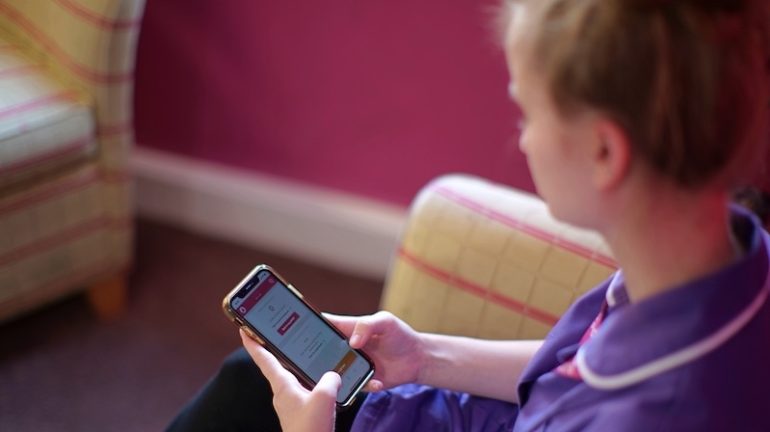The Healthtech Times is a weekly newsletter covering healthtech news from Canada and around the globe. Subscribe to H|T using the form at the bottom of this page to ensure you don’t miss out on the most important healthtech news every week!
Sandpiper Ventures closes $20 million first fund focused on early-stage, women-led tech startups (BETAKIT)
Launched in May 2020 to address the existing gender imbalance in Canada’s venture capital (VC) ecosystem, Sandpiper aims to support women-led tech startups in Atlantic Canada and across the country at the seed stage, while also growing the proportion of women investors.
This startup just raised $320M to make long-term care inside hospitals obsolete (TECHCRUNCH)
The company now plans to expand from servicing 15,000 patients to up 100,000 each day. Ironically, 15,000 patients is the bed capacity roughly equivalent to the 40 NHS hospitals promised more than two years ago by Britain’s ruling Conservative Party, which have yet to be delivered.
Verv closes $3.8 million seed round to develop at-home blood testing kit (BETAKIT)
Self-testing kits open new methods for consumers to monitor their health in any location. A wide range of self-testing kits has become available in the market, including tests for colon cancer, hepatitis C, declining vision, urinary tract infections, and blood pressure monitoring.
Irish gym software company Glofox acquired by US tech group (THE IRISH TIMES)
The transaction is expected to close later this year. While the companies would not be drawn on the financial details of the deal, it is understood to be worth at least €200 million. Latest abridged accounts for Zappy Ltd, which trades as Glofox, show it made a loss of €5 million in 2019, compared with a loss of €1.7 million a year earlier.
Sky-high IPO valuations and venture capital boom times may be over for now, but Canada’s private technology companies are creating new opportunities to innovate, share ideas and collaborate.
IDRx Emerges From Stealth With $122M To Tackle Cancer (CRUNCHBASE NEWS)
“IDRx’s approach offers the opportunity to develop more effective cancer medicines for patients through intentionally built treatment combinations,” said co-founder and CEO Ben Auspitz in a statement.
Backed by Yoshua Bengio, Ubenwa is using AI to diagnose neurological issues through baby cries (BETAKIT)
Using machine learning, Ubenwa – which means the cry of a child in the Igbo language – claims it can decipher baby cries to detect and diagnose medical conditions that have traditionally been difficult to diagnose.
Homeward secures $50M, partners with Priority Health for rural value-based care (MEDCITY NEWS)
San Francisco-based Homeward is working to fill in the gap of primary and specialty care in rural areas. The company announced on Wednesday that it secured $50 million in Series B funding from ARCH Venture Partners and Human Capital.
Braxia buys KetaMD to get into remote-delivered ketamine treatments (TECHCRUNCH)
KetaMD’s telemedicine platform provides access to affordable at-home ketamine treatments for people suffering from anxiety, depression and related mental health conditions. The company’s treatments are medically supervised, guided virtually by registered nurses with mental health expertise, and backed by psychiatrists and depression researchers. KetaMD’s integration of ketamine and telemedicine is guided by best practices and treatment guidance.
Oncoustics secures $5.5 million CAD to help spot liver disease using AI (BETAKIT)
The growing handheld, ultrasound medical device market currently features manufacturers ranging from big players like GE and Philips to emerging upstarts like Butterfly Network and Exo. But according to Oncoustics CEO Beth Rogozinski, these devices are “not typically used” in radiology.
“They’re really intended to be deployed at primary care, emergency departments, [or] in the lab because the image quality is so low.”
Oracle layoffs hit U.S. jobs, including Cerner workforce reductions: media reports (FIERCE HEALTHCARE)
The move comes as Oracle makes deeper investments in cloud technology for healthcare and just weeks after Oracle's $28.4 billion acquisition of health IT company Cerner in June.
10x Genomics Lays Off Approximately 100 Employees (GENOMEWEB)
"We took this action to make us more resilient in the current environment and put us on a path to become a sustainable business," Cofounder and CEO Serge Saxonov said in a statement on Thursday. "While all teams and locations were affected by yesterday’s actions, there was less impact in R&D and field-based customer-facing roles."
Subscribe to The Healthtech Times
Don’t forget to subscribe to The Healthtech Times using the form below to make sure it hits your email inbox every week!


